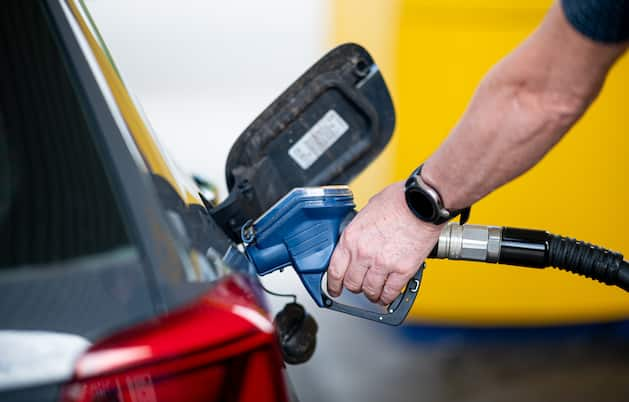New EU sanctions against Russia come into effect on February 5. Then no more refined oil may be imported. This applies to petrol and diesel. Europe has found new sources that will eventually supply Russian oil – at higher prices.
Since December, Russian crude oil has only been allowed to be delivered to the EU below a certain price, and exactly two months later the same sanction will follow for refined oil. From February 5th, imports of processed oil into the EU will be banned. This applies above all to imports of petrol and diesel. In recent years, Germany and the EU have met most of their needs from Russian refineries. 220 million barrels flowed every year, that’s around 600,000 barrels a day. This corresponds to around 80 percent of the consumption of petrol and diesel in Germany alone.
These amounts of fuel must therefore be covered from other sources from February. At the same time, Russia will have to find other buyers for its oil from then on. Oddly enough, Russian oil will probably end up at our pumps again in the end, because one country that has particularly benefited from the sanctions against Russia is India.
The subcontinent has become one of the largest buyers of Russian crude oil. Last year, imports increased from negligible amounts to around 900,000 barrels per day. India is benefiting from the fact that Russia has bought market share with sometimes heavy discounts. So India not only gets more oil, but also cheaper than on the world market.
The Indian refineries exploit this mercilessly. They now produce so much that they can export 2.64 million tons of refined oil per month. That’s about five times what it was before the Russian invasion. 21 percent of all oil exports from India, around 730,000 tons per month, go to Europe. The figures are from November when the Scandinavian analysis company Refinitiv presented a corresponding report.
The Indian refineries are not even running at full speed. Average occupancy is currently 94 percent, which is only around one percent higher than the long-term average. In the years before the corona pandemic, between 2015 and 2019, utilization even reached 110 percent – i.e. more than the actual capacity. This shows that Indian refineries still have room to import and process more Russian oil.
But India is not the only country whose oil industry is benefiting from the EU boycott. Exports from the USA, which have even released parts of their national reserve for this purpose, and China are also booming. China, along with India, is one of the largest importers of Russian crude oil since Europe and the USA left as buyers. Although China does not export oil directly to us, it does export oil to its neighboring countries in Asia. This frees up oil that would otherwise be shipped there from other sources to be traded to Europe.
From February, large quantities of fuels have to be sorted out on the world market, and trade flows change for a significant part of world trade. Experts fear that this could have an impact on the price in the short term. Gasoline and diesel would then also be more expensive in Germany. This should continue until it is clear that everyone involved is dealing with the new situation sensibly and does not have to be afraid of a supply shortage.
In order to prevent this, the Federal Ministry of Economics is taking targeted measures, especially for eastern Germany. So far, the eastern part of the country has mostly been supplied with crude oil, which was refined on site, via Russian pipelines. In order to keep deliveries going, crude oil from Kazakhstan, for example, should then be pumped through the Russian infrastructure to eastern Germany.
It is still unclear how higher transport costs will affect this in the long term. After all, Russian oil must first be delivered to Asia from February and then shipped to Europe from there by ship instead of by pipeline. This is more complex, takes longer and therefore costs more money. Likewise, the EU could take stricter action against such imports, as they technically circumvent sanctions on Russian oil imports.
So far, fuel prices have been unremarkable. At an average of 1.84 euros per liter, diesel is currently 0.8 cents cheaper than at the beginning of the year. Gasoline has increased slightly from 1.73 to 1.74 euros. Since the start of the oil sanctions on December 5th, there have not been any major changes at the pump either.
Follow the author on Facebook
Follow the author on Twitter








